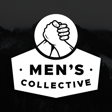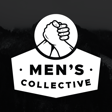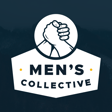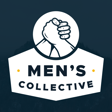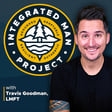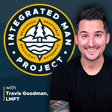
From Temper to Triumph: Breath Work and Radical Acceptance for Dads (feat. Cory Jenks)
Welcome to Episode 102 of The Integrated Man Project! In this episode, host Travis Goodman sits down with Cory Jenks, a pharmacist, improv comedian, author, and father of three. Together, they dive into the profound impacts of breath work, radical acceptance, and emotional regulation in parenting. Cory shares candid stories about the challenges of fatherhood, such as unmet expectations and managing stress, emphasizing the importance of humor and practical advice in parenting literature.
You'll hear about Cory's new book, “I Guess I'm a Dad Now, A Humorous Handbook for Newish Dads Who Don't Want to Suck,” aimed at providing dads with relatable and amusing guidance. This episode explores the often overlooked emotional journeys of fathers, breaking negative cycles, and the crucial role of community and support networks. Whether you’re a new dad, experienced parent, or simply interested in emotional growth and self-reflection, this conversation is sure to offer valuable insights and heartfelt moments. Plus, stay tuned for an exclusive peek into our membership community designed to support your journey as an integrated man. Tune in and get ready to be informed, inspired, and entertained!
HIGHLIGHTS
1. **Breath Work and Emotional Regulation:**
Cory and I delve into the benefits of breath work in controlling emotions and the critical need to be aware of one's nervous system state. Cory shares his personal experiences of realizing the need to pause when he becomes snappy and impatient, often during stressful periods like bedtime routines or meeting deadlines.
2. **Radical Acceptance and Managing Expectations:**
We discuss the concept of radical acceptance—embracing reality without resistance. Cory provides compelling examples, such as handling the frustration of his kids getting sick and disrupting plans, and how he's learned to find joy in unexpected moments.
3. **Humor in Parenting:**
Cory emphasizes the significance of humor for dads in parenting, making the process more enjoyable and less daunting. He found that traditional parental literature was often dry, leading him to gear his own writing towards making dads laugh while providing practical advice.
How do you practice radical acceptance in your daily life, particularly when facing unexpected challenges with your kids or other responsibilities? What strategies help you manage those emotions and refocus on the positive moments?
Looking forward to your insights! See you in the episode!
SUPPORT THE SHOW:
JOIN THE MAILING LIST & GET INVOLVED!
WATCH ON YOUTUBE:
Connect and Support Travis:
YouTube: Travis Goodman
Instagram: @integratedmanproject
Check out the Website: TBD
